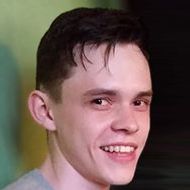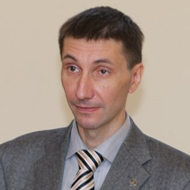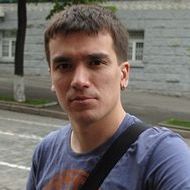Students of HSE University in St. Petersburg Win First Round of ICPC Semifinals
Students of the St. Petersburg School of Physics, Mathematics, and Computer Science Vasily Alferov, Konstantin Makhnev and Maxim Surkov, have won the online round of the ICPC semi-final - student world programming championship. A team from the Faculty of Computer Science of HSE University in Moscow is also in the top three. In addition, three more teams from HSE Moscow and St. Petersburg made it through to the next round.
.jpg)
ICPC (the International Collegiate Programming Contest)) is the largest and most prestigious student programming championship in the world. On December 13th, the first round of the competition semi-final was held in an online format: teams from Russia and neighboring countries took part in it, and students from HSE in St. Petersburg became the winners of the Northern Eurasia Finals 2020.
Maxim Surkov, a 4th-year student of the ‘Applied Mathematics and Information Science’ Bachelor's programme at HSE University in St. Petersburg was taking part for the fourth time in the championship. Each previous time, his team has reached the semifinals of the competition but couldn’t secure first place.

Maxim Surkov
‘Last year, for the first time, we made it to 15th place, but this result still did not get us into the finals: another team from HSE University in St. Petersburg came 14th, and, according to the rules of the competition, the university cannot be represented by two teams at the same time,’ says Maxim. ‘We are very happy with our result this year; everyone did a good job, and we coded in our usual mode: nothing supernatural happened.’
Maxim notes that in the last round of the semifinals, the team did not have enough time to complete the 12th task, which means that ‘there is still a lot of work to do’. ‘Our preparation for programming competitions usually includes weekly contests. And when the tournament is approaching, as a rule, we take part in training camps, which are held to help team members get in shape right before the contest.’

Alexander Omelchenko,
Dean of the St. Petersburg School of Physics, Mathematics, and Computer Science
We participate in the ICPC every year. In 2018 and 2019, six teams from our campus took part in the quarter finals, while this year it was 12 teams. Every year we have had three teams in the semifinals, and one in the finals. This year, according to the results of the online tour, two of our teams made it to the offline tour, and one of them took first place. We really hope that we will be able to repeat this success in the next round.
Participation in such events is good for student portfolios; any success in ICPC helps them both get enrolled on summer internships in leading IT companies, and then get a job in these companies after graduation. In addition, it is good training for the brain, excellent practice of the ‘Algorithms and Data Structures’ course, and improves teamwork skills.
The team from HSE University in Moscow also showed good results in the online round of the ICPC semifinal. Fyodor Kuyanov, Filipp Gribov and Semyon Savkin took third place in the overall standings among the 303 teams participating in the competition, with the top 50 teams qualifying for the offline round. Three more teams represent the Higher School of Economics: two from Moscow and one from the St. Petersburg campus, and all five teams will represent HSE in the offline round of the Northern Eurasia Finals, which will be held in the spring and summer of 2021.

Mikhail Gustokashin,
Visiting Scholar at the Faculty of Computer Science, Director of the Centre of Student Competitions
Five teams from the HSE University in Moscow took part in the competition. And each of them solved at least seven tasks, all of them were in the top 40 out of more than 300 participating teams — this is a clear measure of our success. Five years ago, only one HSE team was in the top 30, we have undoubtedly come a long way in a short period of time. Sports programming is very popular at HSE, and the main competition now takes place among our university students.

